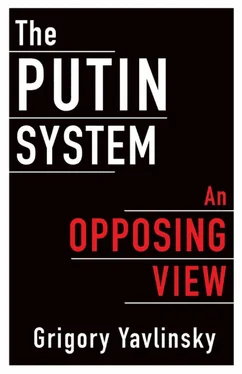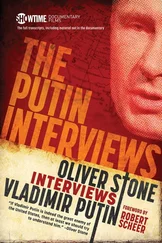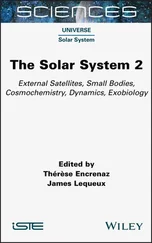At about this same time, prices for oil and gas rose to unprecedented heights in the international markets, in both absolute and relative terms. I believe that, surprising as it may seem, this was yet another important reason why an authoritarian modernization did not take place in Russia. Some may view this explanation as too simplistic, and yet, at times, complex social phenomena may be based on really simple things. It is not at all surprising that the rapid growth of the financial reserves of both the government and of Russia’s population largely deprived them of the incentive to pursue modernizing policies that would be complex and risky (in terms of how different strata in Russian society might have responded to them). Instead, the accumulation of wealth favored a different priority: not to do anything that might disturb this transitory stability.
Meanwhile, the rise in prices for Russia’s export commodities was stopped by the global financial crisis of 2008–2009. Russia’s authorities responded by instinctively retreating into a cocoon and setting up barriers to separate themselves from the ups and downs of Western economies and their complex mechanisms of growth. This was achieved through the rejection of “unnecessary” socioeconomic experimentation and by relying upon the tried-and-tested routines of the resource-based economy—namely, pumping hydrocarbons from newly found deposits and building mega pipelines for their delivery. This became the primary content of economic policies at home.
By now, even a serious prospect of unfavorable trends for Russia’s commodities on the world energy market cannot compel its political system to embark on a pursuit of ways to modernize the economy. Even though the situation was rather different during the first years of the new century, the protracted period of windfall revenues gained without much hard work most likely was a major factor that helped conservative, anti-reform policies to prevail, apparently for the long haul.
Likewise, the personal characteristics of the members of Russia’s ruling circle may have played a considerable role in tipping the scale in this particular direction. These personal characteristics include wariness about the outside world and a misunderstanding of the ways in which Western politics operate and how this shapes the West’s stance vis-à-vis the rest of the world, including Russia. These traits among the Russian leadership caused it to vastly overstate the risks of the wider opening of Russia to the outside world through modernizing reforms. The Russian ruling elite’s exaggeration of the importance of Russia to Western politicians led them to overstate the West’s willingness and readiness to expend huge amounts of resources to bring Russia to a “single common denominator” on every political issue. Of course, this exaggeration of the threat of outside interference in Russia’s politics was caused in part by domestic considerations, but it would be wrong to view it as merely a tool of manipulating public opinion. The authorities were quite genuinely alarmed by the specter of a powerful political force willing to stage a “regime change” operation in exchange for relatively modest financial reward, even if that fear was out of proportion with the actual extent of the threat. [12] In actuality, private and government funds allocated by Western countries for “global democracy support” were rather limited, and even these funds were typically spent on personally enriching “professional democratizers,” with payments having rather tenuous connection to the actual outcomes of their work. The practical result of this “struggle for democracy,” in the West, was sustained public attention to a few dozen media stories and personalities whose high profiles were out of sync with their actual significance and impact in terms of power relationships in Russia, which was minimal at best.
At the same time, one has to admit that Western leaders did not make any effort to assuage the Russian government’s fears and concerns. No one made it a point to really convince Russian authorities that the various grants for the “development of democracy,” which were being issued to opposition-minded individuals and organizations perceived as democrats by the American and European public, were not part of a full-scale plot to topple the Russian government. Even if Russian authorities firmly believed in Western conspiracies, they possibly could have been convinced by the (perhaps somewhat cynical) argument that various nongovernmental organization grants to Russian pro-Western opposition groups were just about as meager, formalistic, and unproductive as, for example, the aid that the Soviet Union, in its time, provided to Western communist parties. Anyone who thought that Soviet handouts to local communists and “leftists” would lead to a power shift in the United States would have been extremely naive; similarly, the whisperings about the billions of dollars that allegedly have been pumped into Russia through some (at times irrelevant and even fringe) nonprofit organizations, to be used to oust the ruling elite or to break up Russia, are just plain nonsense.
Of course, this is not to say that we must completely rule out any attempts by specific individuals and organizations outside Russia to influence the political situation within it in pursuit of their own commercial and other interests. But the risks associated with this cannot by any means be used to justify the rejection of reforms and an all-out confrontation with the outside world. Regrettably, at the beginning of the twenty-first century, there was no one willing or able to explain these truths to Russian authorities. To the contrary, some Western politicians thought it was quite innocuous to tease the Kremlin by making thunderous but empty speeches, semi-ritualistically invoking “support for democracy” in the post-Soviet space (but apparently not in such places as Turkmenistan or Tajikistan), as well as loudly talking about things like the upcoming new expansion of NATO to include former Soviet countries.
One way or another, between approximately 2000 and 2005, Russia’s ruling circle opted for a conservative, anti-reform type of authoritarianism over a modernization-oriented variety. The authoritarianism that prevailed in Russia was not open to dialogue with independent domestic political currents of any significance or to collaboration with the Western world. And, with all the fine-print qualifications and short-term fluctuations in overall policies, this type of authoritarianism became firmly entrenched in Russia in the second half of the decade.
It was certainly a gradual and not an abrupt shift. Changes in the composition and the character of activities of such government institutions as the presidential staff, the State Duma, the Federation Council, local legislatures, and so forth accumulated for years before revealing their qualitative differences from the past. To the extent that an official state ideology transpired from relevant documents and speeches, it maintained the inertia of the 1990s, with reformist and modernization-oriented rhetoric, for quite some time. This rhetoric spiked for the last time during the period when Dmitry Medvedev occupied the presidential office (2008–2012).
Likewise, there were some ups and downs in the government’s willingness to engage in dialogue with Russian civil society organizations from a broad ideological spectrum, as opposed to meeting with preselected and thoroughly vetted representatives. At times, it seemed as if the authorities were in the process of adjusting their prior policies or, at the very least, displaying some hesitation about the expediency of keeping those policies in place. Nevertheless, looking through the prism of medium-term trends, the choice made in the Kremlin was becoming more and more evident with every passing year.
Читать дальше












